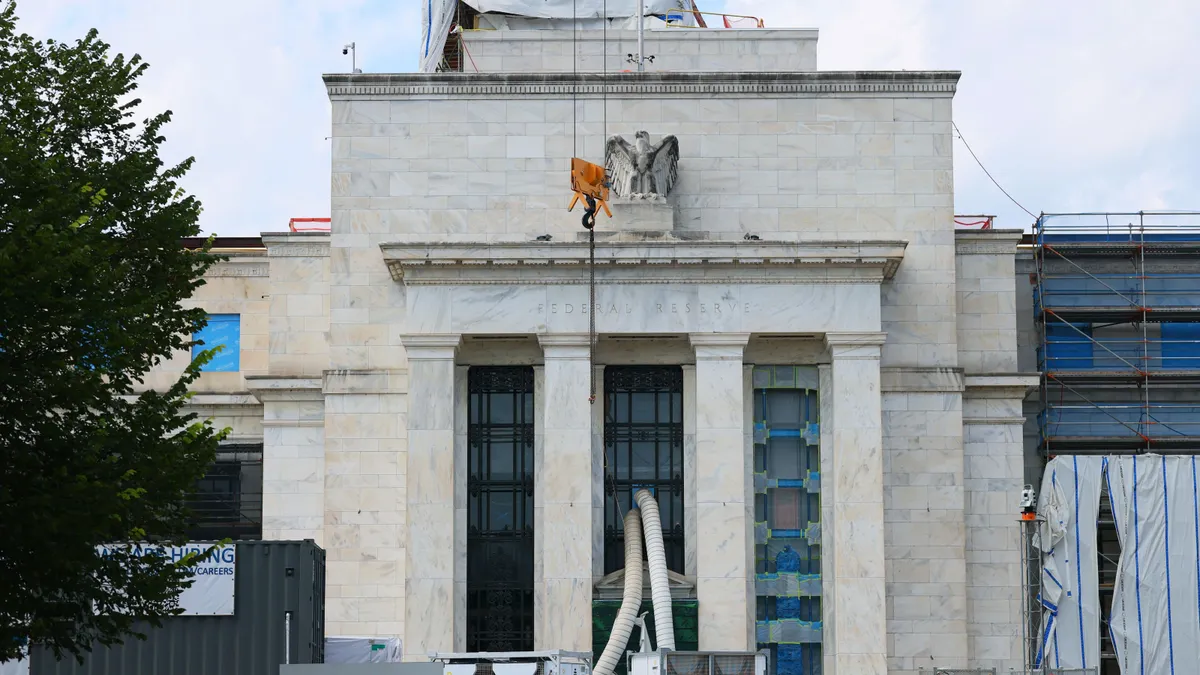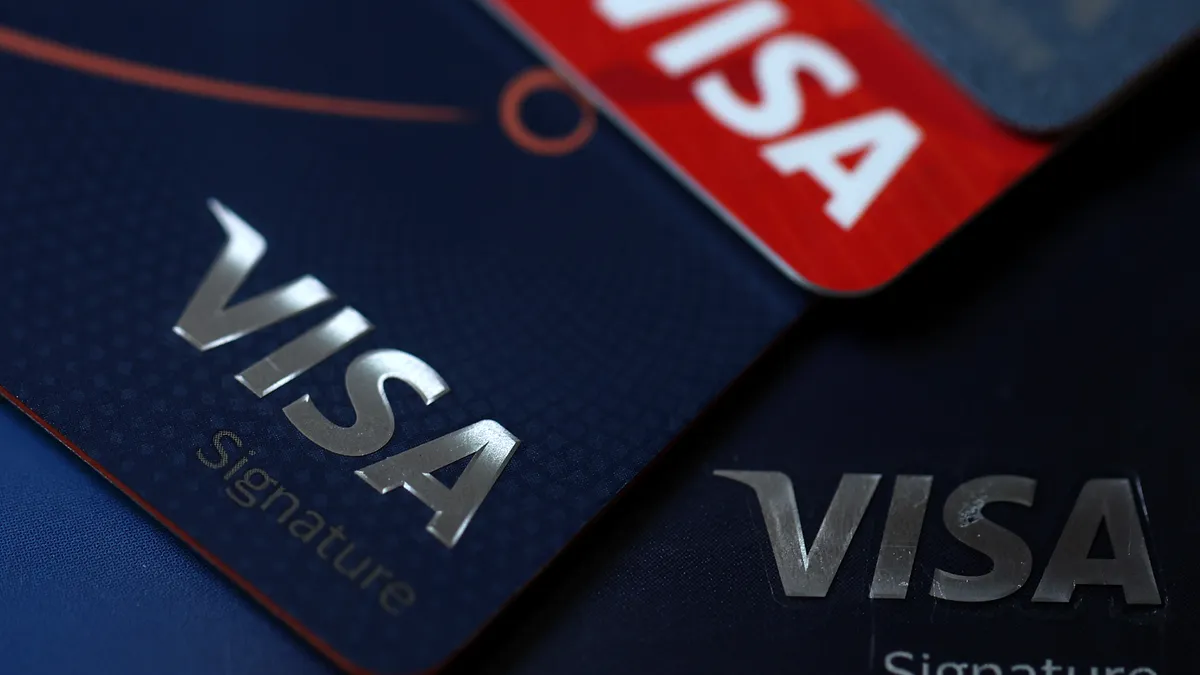Senate Majority Whip Dick Durbin zeroed in on America's two big credit card companies, Mastercard and Visa, for criticism at a congressional hearing on antitrust issues Thursday, again warning the companies about high fees.
At the antitrust subcommittee hearing of the Judiciary committee, Durbin noted American retailers and merchants paid a "staggering" $62.5 billion in swipe fees to Mastercard and Visa last year. He took the companies to task for interchange ‘swipe' fee increases they're reportedly planning to impose as soon as next month.
Durbin, D-IL, has been dueling with the credit card companies over their fees for years. There are millions of dollars at stake for the credit card companies and related payments processing companies on one side, and for retailers and consumers on the other side. With Democrats now in control of Congress and the White House, and Durbin serving as Chairman of the Judiciary Committee, he's making the issue a flashpoint again just months into the new Congress.
Durbin's comments yesterday follow a letter he and Rep. Peter Welch, D-VT, sent to the CEOs of Mastercard and Visa last week, urging them not to follow through on fee increases, arguing such increases would hurt small businesses and consumers struggling to recover from the pandemic.
At the subcommittee hearing on antitrust law reform, which included testimony from a panel of antitrust experts, Durbin addressed Visa and Mastercard almost immediately in his brief appearance, suggesting the credit card companies are still smarting over his namesake Durbin Amendment to the 2010 Dodd-Frank Wall Street Reform and Consumer Protection Act that capped debit card fees.
"They're waiting for an opportunity to get even again," Durbin said during the hearing. "Where is the policing authority to stop this duopoly from doing this to every merchant retailer in America."
While there have been reports this year that Mastercard and Visa planned to impose interchange or 'swipe' fee increases in April, Mastercard has been mum lately and Visa calls the move its "first major restructuring in about ten years."
CEOs of the credit card companies and others in the payments industry formed a new trade group last week, called the Payments Leadership Council, as the battle is brewing. At a separate virtual conference presentation this week, Visa CFO Vasant Prabhu said some interchange fee increases will take place next month, though he called them "adjustments" whose net impact will not result in an increase.
The Electronics Payment Coalition, another industry trade group, says the Durbin Amendment's cap on debit card fees resulted in issuers losing some $90 billion in interchange revenue — including an estimated $14 billion in 2019 alone, based on Federal Reserve data.
Jeff Tassey, chairman of the coalition, argued in a statement today that fees have "held steady" over the years, and emphasized that the fees help pay for innovations in technology that help protect consumers and businesses from fraud and improve the efficiency of the systems. He also noted that its large retailers such as Target, Home Depot and Amazon that ultimately benefit from lower 'swipe' fees.
“Senator Durbin continues to ignore the limits and cost associated with cash-based payments and why electronic payments have been a lifeline for countless small business during this pandemic,” the statement said
Nonetheless, the Merchants Payments Coalition, a trade group that supports reduced fees, welcomed Durbin's hearing comments, saying in a statement yesterday that "fees are among most merchants' highest costs after labor and drive up prices for goods and services paid by the average U.S. family by hundreds of dollars a year."
Sen. Amy Klobuchar, a fellow Democrat chairing the Judiciary subcommittee on Antitrust, Competition Policy and Consumer Rights for the first time in the new Congress, opened the meeting yesterday with a case for reform, saying many American industries are dominated by too few players and lamenting the lack of antitrust enforcement.
While much of the hearing focused on recent bi-partisan campaigns to take on dominant technology companies like Facebook and Google parent Alphabet, she emphasized big tech isn't the only concern, citing problems from "cat food to caskets." The Thursday hearing was dubbed "Competition Policy for the Twenty-First Century: The Case for Antitrust Reform."
Durbin said credit card fees have not been negotiated with merchants, but rather "mandated" by Visa and Mastercard, with "no bargaining power whatsoever" for shops, restaurants and other merchants who accept the cards, along with the fees, to service their customers.
"Those fees were far in excess of any reasonable measure of cost and far higher than they would have been charged in a competitive market, but Visa and MasterCard still are so dominant in the payments market that merchants couldn't stay in business without using (the) cards," Durbin said at the hearing.
In the letter last week, Durbin and Welch gave the companies credit for holding off on fee increases last year during the pandemic. Nonetheless, they lamented the companies' willingness to consider hikes now just as small restaurants and other businesses are recovering from the pandemic.
When the Durbin Amendment was passed as part of the 2010 Dodd-Frank law, proponents of that measure fell short of imposing similar restrictions on credit card fees.
Update: Story updated with comments from the Merchants Payments Coalition.




















